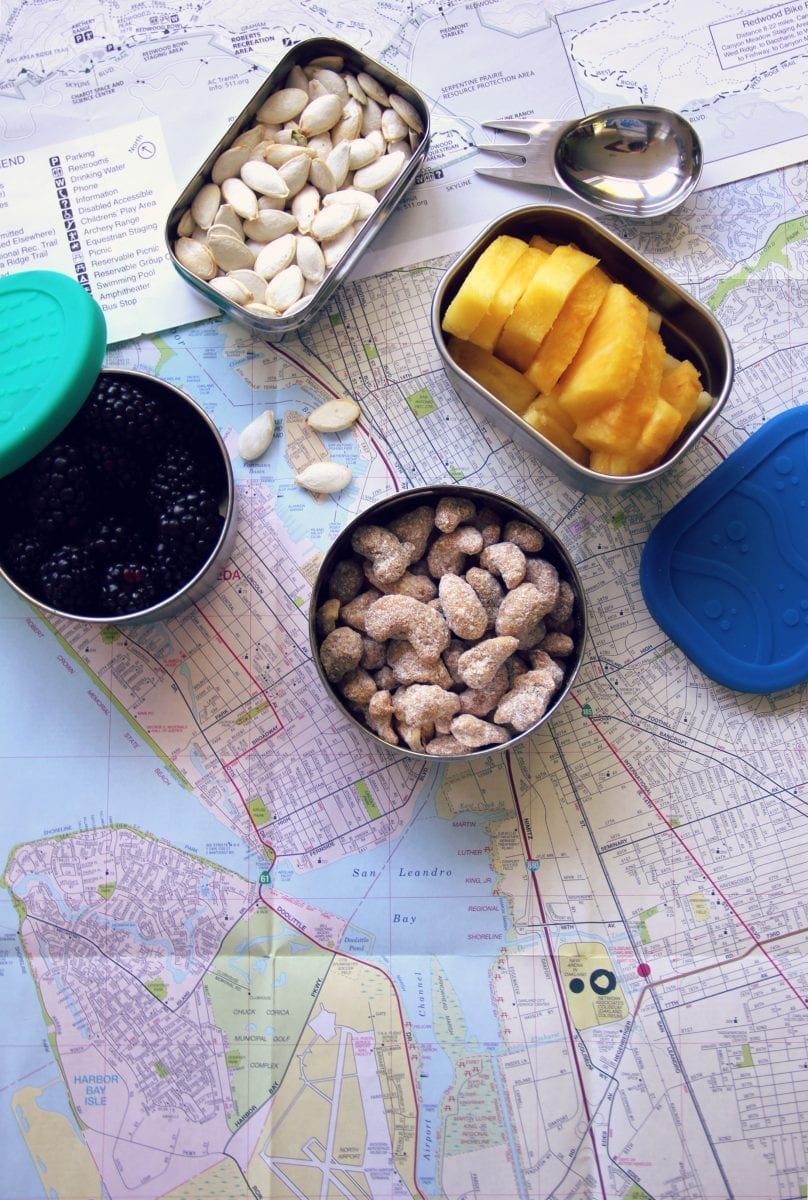To ensure good nutrition and health in your child, they will need to eat a large variety of foods. The amount of food that they eat is less important. Remember that your child?s appetite may decrease and your child may become pickier over the next few years as his/her growth rate slows. As long as they are gaining weight and have a normal level of activity, then you have little to worry about. You can still offer them a variety of foods, but can decrease the serving sizes if they don?t eat a lot.
Food has to be divided into grain group, vegetable group, milk group, meat group and fat group whilst charting out a diet. Grain group servings include 1 slice of bread, 1/2 cup of cooked rice or pasta, 1/2 cup of cooked cereal (wheat, bajra, ragi) and 1 ounce of ready to eat cereal. Your child should eat 6 servings from this group as this is the energy giving group.
The vegetable group includes salad, soup, pureed vegetables, half a cup of cooked or raw vegetable, one cup of leafy vegetables. Your child should eat 3 servings from this group, which provides vitamins and minerals. Plant foods contain thousands of healthy nutrients (in small parts), which help in preventing serious diseases. This is why it is important to eat different types of plant foods.
Fruit group can be introduced in the form of fruit salads or fruit shakes. This food group gives antioxidants and vitamins. It helps keep your child disease free. Your child should eat two servings from this group. Milk group and Meat group servings include one cup of milk or yogurt or 30 gms of cheese or paneer. Your child should eat two servings from the milk group. Meat and fish servings include 100gms of cooked lean meat, poultry or fish. Vegetarians use soybeans and sprouts to compensate for essential amino acids. Your child should eat two servings from this group to have stronger bones and grow taller.
Fats and oils should not form more than 30 per cent of your diet. For a 1600 calorie diet, that would equal 53gm of fat each day, with most preschool children requiring even less. The type of fat that you eat is also important. Saturated fats in foods such as meats, dairy products, coconut, butter and desi ghee raise cholesterol levels more than unsaturated fats, which are found in olive, mustard, and sesame oils, or that of polyunsaturated fats found in sunflower, corn, soybean and cottonseed oils. Saturated fats should be consumed, but one should limit saturated fats to no more than 10 per cent of daily calories. Sugars supply a large amount of calories, with little nutritional value. They include white sugar, brown sugar, corn syrup, honey and molasses. Foods like candy, soft drinks, jams, and jellies should therefore be restricted.
Important Reminders For The Parents
It is much easier if everyone in the house follows these guidelines, than if your child has to do it alone.
Limiting Television: You should limit television viewing to about one or two hours each day (this includes playing video games or using the computer). Watching television doesn?t use up many calories instead it encourages eating unhealthy foods. On the weekend, live life instead of watching it on TV. Find a new place to hike, bike or run. Turn off the television and play card or board games or pursue other hobbies.
Healthy Eating Habits: Your child should eat three well-balanced meals of average size each day, plus two nutritious snacks. Discourage skipping of meals especially breakfast.
Snacks: You should limit snacks to two each day and they can include low-calorie foods, such as raw fruits or vegetables. Avoid using high calorie or high fat foods for snacks, especially chips, cookies, etc. Be the health conscious parent who speaks about the nutritional quality of ?treats? served after games and practice. Offer to put together a choice list of nutritious snack and beverage.
Water: You should encourage your child to drink six to eight glasses of water each day. Water has no calories and it will help you to feel full. Other drinks can include low fat milk, milkshakes, buttermilk, fruit juices and soups. Avoid letting your child drink regular soft drinks or canned fruit juices, as they are high in calories (150-170 calories per serving).
Diet Journal: Help your child keep a weekly journal of food and beverage intake and also of the amount of time spent watching television, playing videogames and exercising. You can also record your child?s weight each week .Do not weigh your child every day.
Regular Exercise: Encourage your child to play outside whenever feasible. Encourage regular exercise for 20-30 minutes 3-4 times each week. This can include walking, jogging, swimming, cycling, etc. It can also include playing a sport, such as basketball, volleyball, tennis, etc.
Special Occasions: Do not pamper the child with promises like ?finish your homework and I will get a bar of chocolate? which most of the parents do; instead offer the child your time for playing, swimming, cycling or visiting a gallery/museum. Allow your child to have special foods or desserts only on special occasions and not on everyday basis.
Be Innovative: Challenge your child to create his own recipe and explain the nutritional value of each food. It will help the child to understand the importance of a particular food for the body. You can help promote good nutrition by setting a good example. Discuss food related advertisements with your child.
(The writer is a practicing diet consultant)





Leave a comment